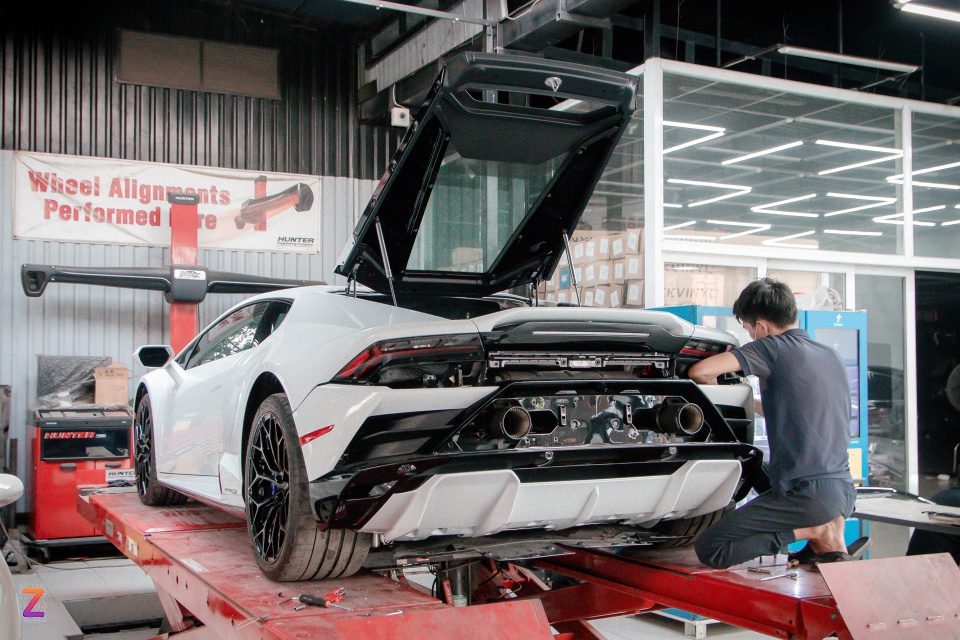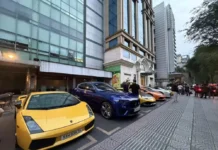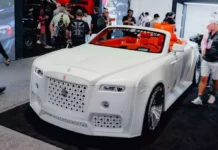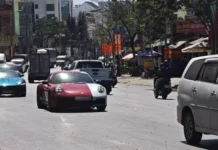## Car Modification in Vietnam: Understanding the Risks and Regulations

|
In recent years, Vietnam has witnessed a surge in car modifications, with many vehicle owners choosing to enhance the aesthetics and performance of their cars. While this trend allows drivers to express their individuality and improve their driving experience, it also raises safety concerns and legal implications.
**The Many Faces of Car Modification**
Vietnamese car enthusiasts often focus on two main types of modifications: aesthetic enhancements and performance upgrades. For a more stylish look, car owners may opt for a wrap or a new paint job, or add spoilers and air dams. While changing the exterior color is not illegal, failing to register the new paint color can result in administrative fines and failed vehicle inspections.
Upgrading the lighting and audio systems is also a popular choice, as many car models are considered to have inadequate lighting or subpar sound quality. However, it’s important to note that modifying the lighting system can be dangerous if the new lights don’t meet safety standards, especially when it comes to headlights. Upgrading the audio system, on the other hand, seems safer as it doesn’t directly affect the car’s performance.
Some car owners take their modifications a step further by altering the car’s structure and engine to enhance driving sensations. Online communities and forums buzz with discussions on altering wheel dimensions, suspension systems, and even engine remapping to achieve a sportier feel.
While these modifications can indeed boost performance, they also increase operational risks. Each car is manufactured with specific settings and synchronized sensors. In the event of an unexpected incident, modified cars may experience sensor malfunctions or electronic system failures, leading to potential accidents.
**Understanding the Penalties**
According to Decree 168, administrative fines for unauthorized car modifications have increased significantly. Individuals who modify their car’s paint job, lighting, or audio system can face fines ranging from VND 4 million to VND 6 million. Organizations engaging in such practices face even higher fines, ranging from VND 8 million to VND 12 million.
More extensive modifications, such as altering the frame, engine, dimensions, or design, can result in heftier penalties. Individuals found guilty of these modifications face fines ranging from VND 65 million to VND 75 million, while organizations can be fined up to VND 130 million to VND 150 million. Additionally, violators may have their vehicle inspection certificates and safety inspection stamps revoked for one to three months.
**A Temporary Solution**
To avoid these hefty fines and registration issues, some car owners choose to rent or borrow car parts to temporarily revert their modifications during vehicle inspections. Many car modification garages offer “back to original” services to help car owners pass these inspections. However, even after successfully passing the inspection, if the borrowed parts are replaced with the modified ones, car owners still risk being fined for altering the vehicle’s structure.
**Conclusion**
While car modifications can add a personal touch and enhance the driving experience, it’s crucial to understand the safety and legal implications. With the increased penalties and strict registration requirements, car owners should carefully consider the risks before making any alterations to their vehicles. Remember, it’s always better to be safe than sorry when it comes to your safety and compliance with the law.
Toyota Avanza Premio MT now available for sale after meeting the standard
In an announcement posted on our website on January 26, Toyota Vietnam has stated that it will resume the delivery of the Avanza Premio manual transmission (MT) version to dealerships starting from today (January 26, 2024), following instructions from the Toyota Group and reporting to the regulatory authorities of Vietnam.
Toyota Avanza Premio MT now available for sale after passing quality tests
In an announcement posted on the website on January 26th, Toyota Vietnam stated that they will resume delivering the Avanza Premio manual transmission (MT) to their dealerships starting from today (January 26th, 2024) after receiving instructions from Toyota Corporation and reporting to the authorities in Vietnam.













































